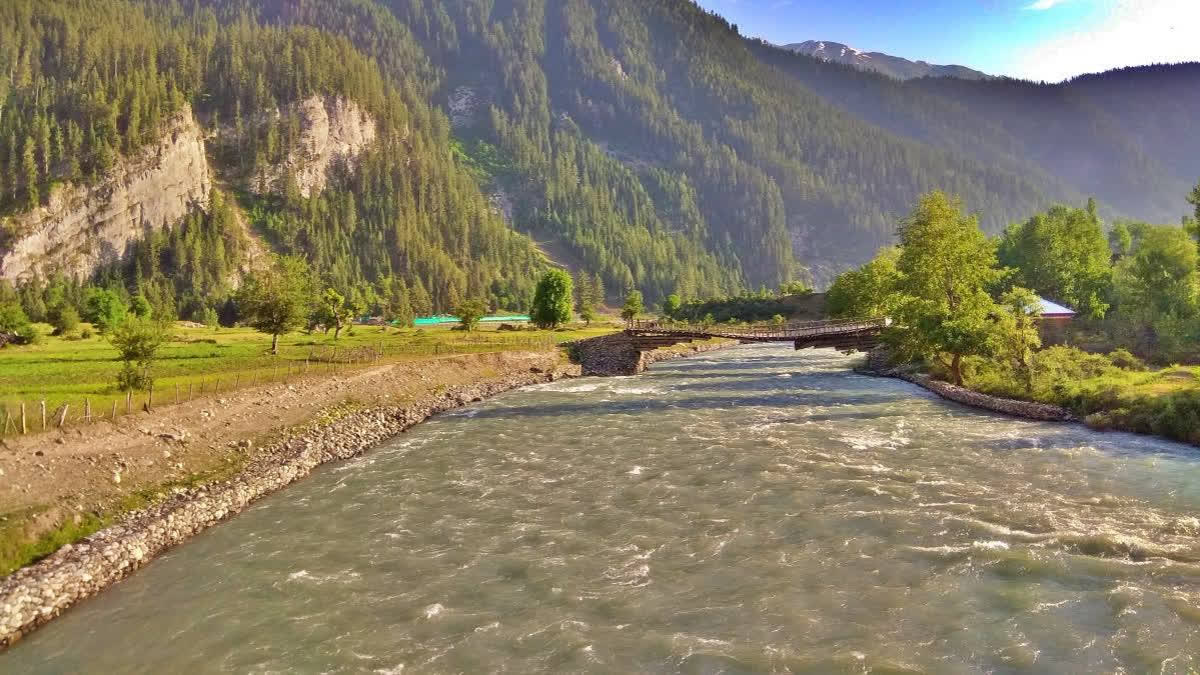New Delhi: Though Pakistan has expressed its willingness to renegotiate the Indus Waters Treaty (IWT) after being put on notice by India, it remains to be seen whether Islamabad will actually walk the talk in the days to come.
Pakistan voiced its willingness weeks after India gave a final ultimatum stating that there would be no further talks between the two sides until and unless the terms and conditions of the IWT are renegotiated given the fundamental changes in the geopolitical and environmental changes since the Treaty was signed in 1960.
“The Indus Waters Treaty is an important treaty that has served both Pakistan and India well over the last several decades,” Pakistan Foreign Office spokesperson Mumtaz Zahra Baloch said in response to a question during her weekly media briefing in Islamabad on Thursday. “We believe it is the gold standard of bilateral treaties on water sharing, and Pakistan is fully committed to its implementation. We expect India to also remain committed to the treaty.”
What is the IWT?
The Indus Waters Treaty is a water distribution treaty between India and Pakistan, arranged and negotiated by the World Bank, to use the water available in the Indus River and its tributaries. It was signed in Karachi in September 1960 by the then Indian Prime Minister Jawaharlal Nehru and the then Pakistani President Ayub Khan.
The Treaty gives control over the waters of the three “eastern rivers”-- the Beas, Ravi and Sutlej-- to India, while control over the waters of the three “western rivers” --the Indus, Chenab and Jhelum--is with Pakistan. The Treaty establishes a cooperative mechanism for exchanging information between the two countries regarding the use of the western rivers allocated to Pakistan and the eastern rivers allocated to India.
The preamble of the Treaty recognises the rights and obligations of each country in the optimum use of water from the Indus system in a spirit of goodwill, friendship and cooperation. The Treaty allows India to use the western river waters for limited irrigation use and unlimited non-consumptive use such as power generation, navigation, floating of property, and fish culture.
Under the Treaty, a Permanent Indus Commission was established. The Commission, which has a commissioner from each country, oversees the cooperative mechanism and ensures that the two countries meet annually (alternately in India and Pakistan) to discuss myriad issues emerging from the treaty.
The Treaty has largely been upheld for more than six decades, surviving several wars and periods of high tension between India and Pakistan. However, in recent years, multiple disputes over water usage, dam construction, and Treaty implementation have brought it into the spotlight once again.
What is the latest controversy over the Treaty?
Both countries held different positions when Pakistan raised objections regarding the technical design features of the Kishanganga (330MW) and Ratle (850 MW) hydroelectric power plants located on the tributaries of the Jhelum and the Chenab, respectively, designated as “western rivers”.
However, under certain articles of the IWT, India is permitted to construct hydroelectric power facilities on these rivers. Pakistan then approached the World Bank to facilitate the setting up of a court of arbitration to address the concerns related to these two projects. India requested the appointment of a neutral expert referent to Clause 2.1 of Article IX of the IWT on the settlement of differences and disputes of the treaty.
In October 2022, the World Bank appointed Michel Lino as the Neutral Expert and Sean Murphy as the Chairman of the Court of Arbitration, acceding to both the South Asian neighbours’ requests.
India then said that it has noted the World Bank’s announcement to concurrently appoint a Neutral Expert and a Chair of the Court of Arbitration in the ongoing matter related to the Kishenganga and Ratle projects.
“Recognising the World Bank’s admission in its announcement that ‘carrying out two processes concurrently poses practical and legal challenges’, India will assess the matter,” New Delhi said. “India believes that the implementation of the Indus Water Treaty must be in the letter and spirit of the Treaty.”
Then, in January 2023, India sent its first notice to Pakistan indicating New Delhi’s intent to address what it views as fundamental changes in the geopolitical and environmental landscape since the treaty was signed in 1960, citing changes in population growth, agricultural needs, and the evolving water usage situation since the treaty's inception in 1960.
However, in July last year, the International Court of Arbitration (ICA) ICA said that the Court of Arbitration headed by Sean Murphy has the “competence” to address matters related to the IWT. New Delhi said that it will not accept any ruling given by the Court of Arbitration that was formed on Islamabad’s request.
India said that the “so-called Court of Arbitration is in contravention of the provisions of the Indus Waters Treaty”.
“A Neutral Expert is already seized of the differences pertaining to the Kishenganga and Ratle projects,” the External Affairs said in a statement. “The Neutral Expert proceedings are the only Treaty-consistent proceedings at this juncture. The Treaty does not provide for parallel proceedings on the same set of issues.”
What is the latest development?
According to reports, despite being sent several reminders since the first notice in January 2023, Pakistan has been intransigent in its responses.
Eventually, on August 30 this year, India sent the notice with the ultimatum to Pakistan. Pakistan's expressing willingness to renegotiate the Treaty comes weeks after it was given the ultimatum.
So, will Pakistan come to the table for renegotiation of the Treaty? Watch this space.
Read more: Pakistan Urges India To Honour Provisions Of Indus Water Treaty



